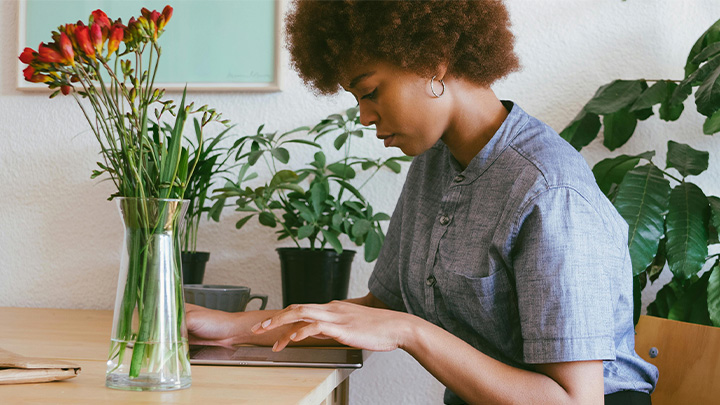Home > Blog > Creating a mental health friendly study environment at home
Creating a mental health friendly study environment at home

Let’s be real – studying at home can sometimes feel overwhelming. The dishes are calling, your phone is pinging, and the thought of that next exam can make your heart race. But here’s the good news: with a little effort, you can turn your study space into a calm, productive sanctuary that supports your mental well-being.
Your environment matters more than you might think. A mental health-friendly study space can reduce anxiety, boost confidence, and make your study sessions way more effective. Let’s dive into how to create a space that works for you, not against you.
1. Choose your spot wisely
Not everyone has a spare room to turn into a study haven, and that’s okay. What’s important is finding a spot where you can focus. Maybe it’s a corner of your bedroom, a small nook in the kitchen, or even a tidy table by the window.
Pro tip: Try to pick a space that’s free from distractions and feels separate from your relaxation areas. It helps your brain switch into “study mode” more easily.
2. Declutter your space
A cluttered desk can lead to a cluttered mind. Take a few minutes before each session to tidy up. Keep only the essentials – your laptop, notepad, pens, and maybe a glass of water.
Why it helps: A clean, organised space can help you feel more in control and less overwhelmed.
3. Light it up
Natural light is a game-changer. It boosts your mood, helps you stay alert, and reduces eye strain. If natural light isn’t an option, opt for a warm desk lamp that mimics daylight.
Bonus tip: Position your workspace near a window, if possible. A bit of sunlight or a glimpse of the outside world can do wonders for your mental health.
4. Add personal comforts
Your study space should feel inviting, not like a punishment. Add small touches that make you happy – a plant, a cosy blanket, or a motivational quote.
Sound matters too: If silence feels too heavy, try calming background music or white noise to help you focus.
5. Keep mental health in mind
Studying can be stressful, so your space should also help you unwind when needed. Consider adding:
- A comfy chair: Sitting for hours can take a toll, so make sure you’re comfortable.
- A mindfulness corner: Keep a journal or a few stress-relief tools like a stress ball or scented candle nearby.
- Break-time essentials: A water bottle and healthy snacks can help keep your energy steady.
6. Set boundaries
Let people in your household know when you’re studying so they can minimise interruptions. Use headphones or a “Do Not Disturb” sign if needed.
Tip for balance: Stick to specific study hours and give yourself permission to step away when the time’s up.
7. Embrace the power of positivity
Your environment is important, but so is your mindset. Decorate with affirmations, photos of loved ones, or even a checklist of your goals. These small reminders can help you stay motivated, even on tough days.
The impact of a mental health friendly study space
Creating a calm and supportive environment isn’t just about acing exams – it’s about protecting your well-being. A well-designed study space can:
- Lower anxiety by reducing distractions and fostering focus.
- Boost confidence by giving you a sense of control and achievement.
- Support resilience as you tackle challenges, one step at a time.
Remember, studying is just one part of the journey. Taking care of your mental health is what makes the journey sustainable.
You’ve got this!
At Eagle, we believe that the right support – whether it’s flexible study plans, expert advice, or mental health-friendly tips – can make all the difference.
So, why not give your study space a little refresh? It’s not just about where you study, but how you feel while doing it. With a bit of effort and a lot of kindness to yourself, you’ll be set up for success in more ways than one.
Have a read of our blog – How to create an ergonomic home office – for more study-environment tips.